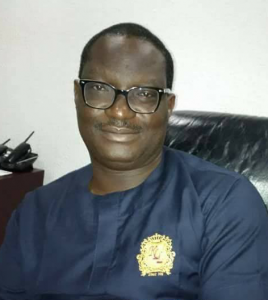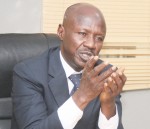Why there is setback in engineering profession, by engineer
http://www.gatewaymail.org/wp-content/uploads/2016/07/Engr.-Falobi..png
NIGERIA: THE influx of half-baked engineers has been identified as a major factor responsible for setback in the engineering profession in Nigeria.
Dideolu Falobi, a certified engineer and Managing Director of Kresta Laurel Limited, an engineering firm owned by former Governor of Ogun State, Otunba Gbenga Daniel, made this known while featuring as guest on a live programme, “Podium” of Sweet FM Radio Station based in Abeokuta,Ogun State capital.
Falobi said that if the planned investment in infrastructure should go ahead as envisaged, engineers would have opportunities to express themselves more and also develop more.
He stated that the challenge of training remains another serious headache for the body, which needs attention of the regulatory body.

“Basically, the biggest challenge is the challenge of training,” he said, adding: “We have issues with the quality of products and I believe it also has to do with the various institutions that are training them.
“There has been poor funding; there has been poor payment for lecturers. Research and development which are keys in engineering have been suffering because of poor funding.”
Falobi added: “So the products that are coming out are not as good as we want them to be. There is also what I believe that we need to add to the curriculum nowadays, more on entrepreneurship and management because the engineer today is more of a manager than just to be in engineering.”
Falobi, who is a member of the Nigeria Society of Engineers (NSE), however, expressed optimism on improvement in the profession if the necessary measures are carried out effectively, and all anomalies corrected.
He said: “I don’t believe that we don’t have technically fit engineering graduates; I believe that we have engineering graduates that can still be improved upon. The institutions where they are trained have deficiencies but despite that, it should be known that the real training of an engineer starts when you come out.
“What we have in the institution is to be provided with the basic foundation for you to practice.”
“That is why you find out that in the engineering profession, you don’t become a corporate member of the society in the engineering profession,” he further stressed. He also said: “You are in training for four years, but the opportunities for those trainings are limited. You can see what happened to the banking industry after the consolidation.
“It led to better capacity for banks and a lot of people went to the banking and got proper training. The same will happen in engineering if the right environment in terms of opportunities is created.”
Falobi said that what should be in the curriculum in tertiary schools is not there, adding that with what is been seen outside, there are two basic things that need to improve on.
According to him, engineer-in-training at the university needs to be properly tutored on entrepreneurship more than whatever they are doing now and they need to do more of management.
He said: “In our universities, there are a lot of students dealing with courses that have to do with economics and management. This really needs to be made compulsory if they are not because when you come out, you need all these knowledge to really excel and to be a total engineer.
“Having said that I also think the other thing is that there should be more cooperation between the universities and the industry so that we exchange ideas in the gaps in the training in what we expect and what we get so that universities can also redesign the curriculum where necessary. We should also know that limited funding will hinder the ability to achieve all these.”
He also said: “I see the kind of trainings they organise on a regular basis and I see an increasing attention being paid into entrepreneurship trainings. It is not only on entrepreneurship.
“I believe that engineers need to be engaged on management and they have to understand the politics. They also have to be properly trained on administration.
“In those days when we had engineering companies that were thriving, you will discover that there was a lot of training for engineers in all these areas.”
Falobi further said: “Today, a lot of trainings in most companies are in core engineering areas because the incomes coming to those companies are so limited and so poor. So the training is not only in the universities, it is also in the engineering companies.”






































